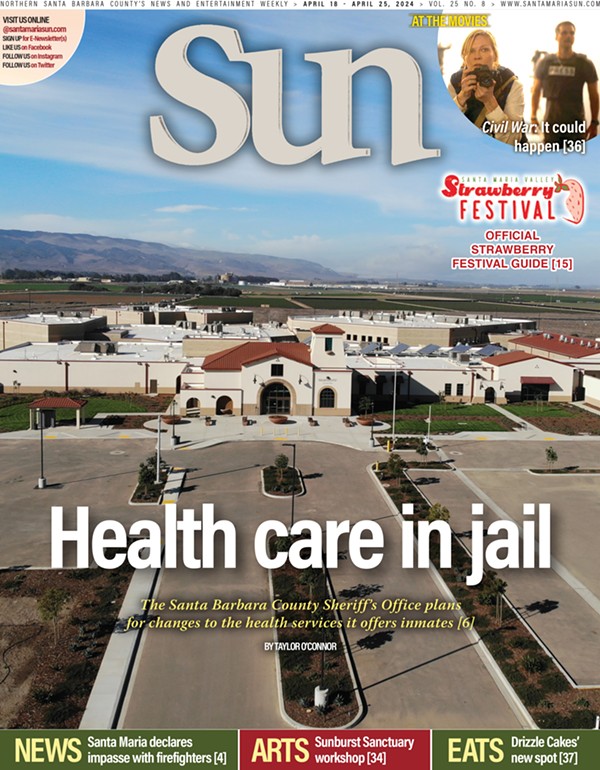Facts matter, especially to a professional librarian who is trained to separate opinion and perception from facts. In the last two months, the city of Santa Maria Public Library has received a multitude of attention for requiring the Friends of the Santa Maria Public Library to sign a memorandum of understanding (MOU) defining the roles of the city and the Friends, and for issuing a lease for the Friends to sign for their use of space in the library lobby area as a Library Shop.
Three of the four Friends of the Library groups serving the libraries in the Santa Maria Public Library system along with the Library Foundation have all signed the MOU and nothing has changed in their level of control other than a better understanding between the city and the nonprofit groups of each other's roles and responsibilities. The library has MOUs or leases with all other groups that use space in or do business with the library, including the Santa Maria Joint Union High School District, Moxie Café, Allan Hancock College, Central Coast Literacy Council, and the Santa Maria Valley Genealogical Society. MOUs are a common document in use to assure mutual roles are defined for a better working relationship.
In an effort to correct the information shared in the "Frenemies" editorial (Aug. 23), which was based on a letter composed and sent to members of the Friends of the Santa Maria Public Library in June, I ask readers to visit the city of Santa Maria Rumor Control page, which has the facts about many of the issues raised by the Friends. See cityofsantamaria.org.
My goal in this piece is to correct some of the incorrect information shared in the Canary's editorial "Frenemies."
The Library Shop, when run by the Friends of the Library, incurred administrative overhead due to the shop being managed by a paid employee, Nancy Marriott. Nancy is cited in "Frenemies" as a longtime Friend and supporter of the library. She served as the Friends Library Shop manager until the shop closed and she continues to work for the Friends of the Library as a paid employee. The gross proceeds of the shop mainly went to the overhead of paying an employee and operating costs. In 2017, the library gave more than $20,000 of donated materials and free space for the Friends' use. The shop netted a revenue of $7,346. Interesting to compare this net revenue to that of the Orcutt Friends of the Library, which generated a net revenue of $6,882 for the Orcutt Branch in 2017. The revenue was from book sales without a physical shop space or a paid employee.
In response to the Friends board of directors' statement that the memorandum takes away all the nonprofit's rights to determine how to obtain and disperse funding and resources and requires the Friends to disband upon the demand of the librarian, that is simply unsubstantiated and an incorrect interpretation of the document. The actual wording in the MOU assigns the Friends the role and responsibility "to disband, allowing for a new Friends group to be established in the future, if the Friends (1) cease to actively fundraise for and/or promote the library, and (2) thereby cease to support the goals and objectives of the library as determined annually by Library Administration." The words "upon the demand of the library" do not exist in the MOU. Is fundraising and promoting the library not an unrealistic expectation for the Friends of the Library?
The statement that the city refused to make concessions was not accurate. The Friends requested a lower rent of $833 per month ($10,000 year), which the city agreed to. The rent could have been offset by the Friends decreasing the grant amount they give to the library annually. The original rent amount of $2,051 cited in Kasey Bubnash's Aug. 23 article ("A strained friendship") was negotiated to $833, however, the Friends failed to report that fact to their membership or the press.
One of the main sticking points with the Friends was their desire to retain all control of the volunteer program including hiring, training, scheduling, and dismissing volunteers. The city of Santa Maria Public Library has always performed the task of accepting volunteer applications, vetting volunteers, sending them to the shop manager for further review, and training in city policies to assure all volunteer requirements were conveyed to potential volunteers. The library volunteer policy and handbook are on the library's website and include training in customer service, volunteer misconduct, and much more that assures patrons of all ages are well served and have a safe experience when visiting the library. Again, see cityofsantamaria.org.
At one time, the Friends hired a handful of volunteers without communicating to or getting approval from the library volunteer coordinator. When misbehavior occurred and patrons complained, the library immediately stepped in to determine that volunteers had been hired by the Friends who had not been properly vetted or trained. Rather than addressing the misbehavior, the Friends board defended it and thus incurred further liability for the city. The public often considers volunteers as employees, and consequently the library has a comprehensive volunteer policy and program in place to assure that volunteers are thoroughly trained and potential liabilities are addressed.
It is time to move past our differences and embrace the great things happening at the library with the opening of Moxie Café that brings healthy new food options for library visitors, a reopening of a city-run book shop that allows those of lesser means to have books that their children can enjoy without hurting their limited pocketbooks, and many other exciting new programs in the works for children and teens. There is every reason for the Friends to join in and support all of these great new opportunities for the patrons and their children. μ
Mary Housel is the city librarian for the Santa Maria Public Library and its branches. Send your thoughts to [email protected].








